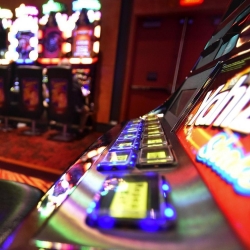The Pennsylvania Gaming Control Board is deciding whether to open mini-casino bidding to out-of-state casino companies or local non-casino business operators after the 6th satellite casino license received no bids. Two weeks ago, Penn National Gaming was the only bidder.
So far, the Pennsylvania casino licensing process has generated $127 million in revenue for the State of Pennsylvania. The early bids produced surprisingly high bids, with Penn National securing the first casino license with a $50.5 million bid. Its second winning bid was barely above the minimum allowed fee.
The fact that one of the state’s casino license holders secured two new casinos needs explaining. After the previous auction had no bidders among the original pool of license holders who did not have a satellite casino license, the Gaming Control Board opened bidding to the casino companies that already had won a bid, as well as the state’s two casino operators who were not eligible for bidding in the first place.
Declining Interest in Mini-Casinos
That means six of the state’s major casino licensees have gone at least 3 auctions without submitting a bid, even after it became obvious that a minimum bid of $10 million would secure a developer the right to build a new casino and pick its own location — with some restrictions in the population centers. Those casino owners with the best understanding of Pennsylvania’s casino industry decided it was not worth the investment.
Each mini-casino can have up to 750 gaming machines and 30 gaming tables. The areas around Philadelphia and Pittsburgh are filled with casinos, so a new mini-casino would need to be built in the outlying areas of Pennsylvania. The problem is many operators have built along the most promising areas bordering nearby states, while Central Pennsylvania received attention from 3 new mini-casino developers. Beyond that, most nearby states have big new casinos, especially Maryland and New York.
Pennsylvania might be reaching a saturation point. With 12 operating casinos, it already is the second-leading state in commercial casino revenue, behind only Nevada. Due to a higher tax rate, Pennsylvania is the leading US state in commercial casino tax revenues ($1.4 billion). Now those 12 casinos will have 5 new mini-casinos opening in the next few years. Obviously, the existing operators believe the market is reaching a point of diminishing returns and the remaining locations would not be profitable.
Out-of-State Mini-Casino Owners?
That makes one wonder whether out-of-state casino operators would consider a mini-casino worth the investment. The potential to add an online gaming portal with multiple skins might make the prospect more lucrative, especially if Pennsylvania joined the Multi State Internet Gaming Association, an interstate poker compact signed by Nevada and Delaware in 2014 (and joined by New Jersey in 2017). Whether a land-based mini-casino license would allow for an online gambling license is another matter.
Opening mini-casino licensing bidding to local operators might be more promising. It is often said that owning a casino is a license to print money. That is the case if you know the business, know where to build a casino, and have an existing player database. As New York is learning right now, handing a casino license to real estate developers who build malls and residential districts does not assure success. A casino is a license to print money, if you adhere to proper risk management.
Pennsylvania to Join MSIGA
Speaking of the Multi State Internet Gaming Association, Pennsylvania media members are discussing whether the state should join the interstate poker compact alongside New Jersey, Nevada, and Delaware. Sharing pools of poker players helps operators stage bigger online poker tournaments, thus offering bigger guaranteed prize pools. That draws more players to enter the events, thus driving interest in online poker sites and generating more revenue.
New Jersey is adding its 9 million players to the already-existing player pools of Nevada (3 million) and Delaware (1 million). Obviously, New Jersey’s addiction is going to grow the player pool by 300%, so it stands to become a bigger factor when the Garden State joins the MSIGA next month.
26 Million Poker Player Pool
If Pennsylvania joined, its 13 million residents would double the size of the Multi State Internet Gaming Association’s player pool once again. That would be a serious pool of card players — with 4 million more poker players than all of Australia. Such a big player community might convince other states, including New York and California, to legalize online poker and join. New Jersey has talked to the United Kingdom about sharing player pools, so Pennsylvania’s entry could be the beginning of something big.
One should note that the mere fact states like Pennsylvania are adding online poker and online casinos is a good thing for the politics of online gambling. With two notable opponents of online gambling — Jeff Sessions and Rod Rosenstein — running the US Department of Justice, the entire legality of online casinos and poker sites rest on a single 2011 DOJ opinion which would be reversed with a simple memo. While that would lead to lawsuits and restraining orders, such a process would have a withering effect on new online poker legislation in other states.
The more states a new DOJ opinion on the meaning of the UIGEA would effect directly, the more advocates legal online gambling would have in the US Congress. Also, the more of a tripwire anti-online gambling legislation would face.

